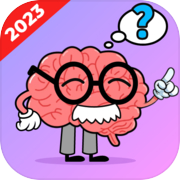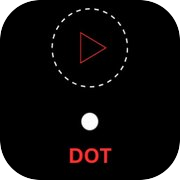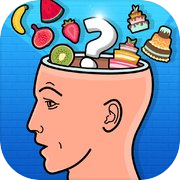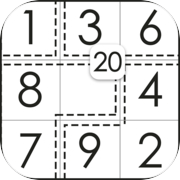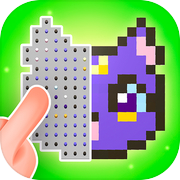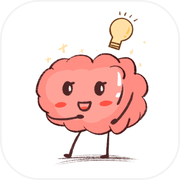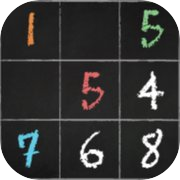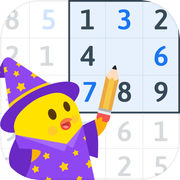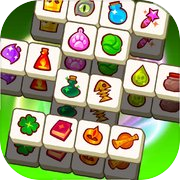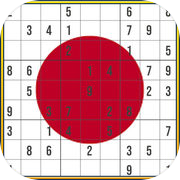Sudoku - The Brain Game

Sudoku is a brain game originating from Japan. The game has numerous benefits which is a reason it is wildly popular. Some of the benefits include improved concentration, that is the more puzzles you play, the more absorbed in your task you will be each time, improving your concentration skills step by step.
It helps you reduce anxiety and stress as it requires the player to concentrate on the grid and use logical thinking to find the solution for each cell. This break can be just enough for the player to regain their sense of balance and become calmer. Once the puzzle is over, they might even find that the task or the problem that generated so much anxiety is not as daunting as initially seemed.
Just as exercising can boost your vitality, so does playing challenging thinking games like Sudoku. A fitter and happier brain is the first step to regarding the world and your life with a healthier and more positive mindset.
Furthermore, the challenge of solving what to a kid will seem like an easy and boring game also helps them to engage more intensely to finish it quickly and improves their concentration skills.
These benefits of Sudoku can also help them in other areas and even improve their school performance.
Sometimes, Sudoku can become a competition against yourself. Although time is not a constraint in this game, a timer is always provided allowing the player to track their performance.
Since logical and concentration skills increase with each challenge, you will become faster at completing a grid each time.
You can then use the timer as a motivator to promote a healthy competition against yourself and to improve your skill more and more.
As far as the benefits of Sudoku go, improved thinking skill is likely one of the first player's experience.
In the initial stages, solving a puzzle can be a chaotic process and you are likely to jump from the analysis of rows and columns to groups randomly. However, the brain will instinctively begin to find patterns of solutions. As the game progresses, you will come to understand which elements and which patterns are more likely to result in a quicker and easier solution.
Slowly, you will begin to apply this improved skill in your daily life too, and you will be able to identify more efficiently the best way to attain the outcome you desire.
The first time you play an easy Sudoku level, you might find yourself noting down all the candidates for one single cell in order to keep track of your progress. The more challenges you face, the quicker you will drop these notes as your brain will retain the information naturally.
In harder levels, notes will become essential once again, but your memory skills will still be stimulated in different ways. You will become able to remember more complicated strategies and how to apply them without referring to a tutorial. Patterns from previous games will also be memorized and you will find yourself looking for the opportunity to apply them once again.
Logical skills are the only true requirement to be able to play a Sudoku puzzle. Even in this case, the inference pattern is a simple one: if X is true, then Y is false. The difficulty levels in Sudoku depend solely on the number of allocated clues given at the beginning of each puzzle. The logic behind the game remains the same every time.
It can be played by people of any age and of any economical background. Having a logical brain is the only requirement to play these puzzles, and every human being is gifted with one.
Completing a grid and finishing a Sudoku puzzle successfully infuses the player with a sense of accomplishment and satisfaction. The harder the puzzle and the struggle to solve it, the more joy and happiness a player feels at the end.
It helps you reduce anxiety and stress as it requires the player to concentrate on the grid and use logical thinking to find the solution for each cell. This break can be just enough for the player to regain their sense of balance and become calmer. Once the puzzle is over, they might even find that the task or the problem that generated so much anxiety is not as daunting as initially seemed.
Just as exercising can boost your vitality, so does playing challenging thinking games like Sudoku. A fitter and happier brain is the first step to regarding the world and your life with a healthier and more positive mindset.
Furthermore, the challenge of solving what to a kid will seem like an easy and boring game also helps them to engage more intensely to finish it quickly and improves their concentration skills.
These benefits of Sudoku can also help them in other areas and even improve their school performance.
Sometimes, Sudoku can become a competition against yourself. Although time is not a constraint in this game, a timer is always provided allowing the player to track their performance.
Since logical and concentration skills increase with each challenge, you will become faster at completing a grid each time.
You can then use the timer as a motivator to promote a healthy competition against yourself and to improve your skill more and more.
As far as the benefits of Sudoku go, improved thinking skill is likely one of the first player's experience.
In the initial stages, solving a puzzle can be a chaotic process and you are likely to jump from the analysis of rows and columns to groups randomly. However, the brain will instinctively begin to find patterns of solutions. As the game progresses, you will come to understand which elements and which patterns are more likely to result in a quicker and easier solution.
Slowly, you will begin to apply this improved skill in your daily life too, and you will be able to identify more efficiently the best way to attain the outcome you desire.
The first time you play an easy Sudoku level, you might find yourself noting down all the candidates for one single cell in order to keep track of your progress. The more challenges you face, the quicker you will drop these notes as your brain will retain the information naturally.
In harder levels, notes will become essential once again, but your memory skills will still be stimulated in different ways. You will become able to remember more complicated strategies and how to apply them without referring to a tutorial. Patterns from previous games will also be memorized and you will find yourself looking for the opportunity to apply them once again.
Logical skills are the only true requirement to be able to play a Sudoku puzzle. Even in this case, the inference pattern is a simple one: if X is true, then Y is false. The difficulty levels in Sudoku depend solely on the number of allocated clues given at the beginning of each puzzle. The logic behind the game remains the same every time.
It can be played by people of any age and of any economical background. Having a logical brain is the only requirement to play these puzzles, and every human being is gifted with one.
Completing a grid and finishing a Sudoku puzzle successfully infuses the player with a sense of accomplishment and satisfaction. The harder the puzzle and the struggle to solve it, the more joy and happiness a player feels at the end.
Available on devices:
- Android
- Smart TV













